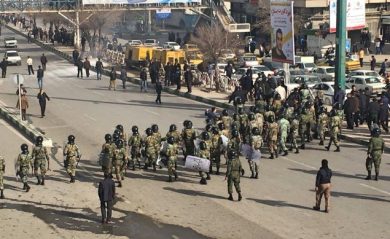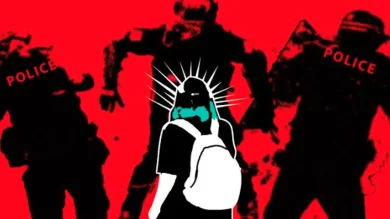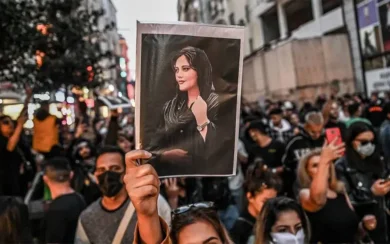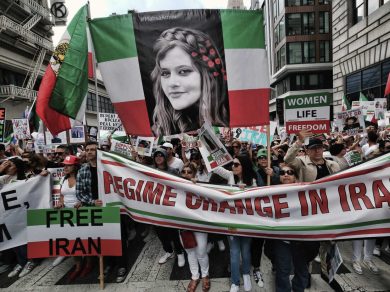For decades, Iranian women have been at the forefront of the fight for freedom, dignity, and equality, resisting a regime that enforces gender apartheid and systematic oppression. Their fight for equality is not just a domestic issue—it is a global human rights battle that demands international attention and action.
From mandatory hijab laws to educational and economic restrictions, Iranian women face institutionalized discrimination upheld by the Islamic Revolutionary Guard Corps (IRGC). Yet, despite brutal crackdowns, arrests, and imprisonments, they continue to lead protests, challenge authorities, and demand justice.
This article explores:
• The systematic oppression of women in Iran.
• How Iranian women are leading the movement for change.
• Why global support matters.
• How individuals, organizations, and governments can support Iranian women’s fight for equality.
1. The Reality of Gender Oppression in Iran
A. Legal and Social Discrimination
Under Iran’s laws, women are treated as second-class citizens, facing discrimination in:
• Personal freedoms: Women must wear the hijab and adhere to strict dress codes in public.
• Marriage and divorce: Women need their husband’s permission for travel and face legal disadvantages in divorce.
• Employment and education: Many career paths and leadership positions remain inaccessible to women.
• Inheritance laws: Women inherit half of what men do, reinforcing economic inequality.
These laws are actively enforced by the IRGC, which arrests, harasses, and tortures women who challenge these restrictions.
B. The Role of the IRGC in Enforcing Gender Oppression
The IRGC acts as the enforcer of patriarchal rule, using:
• The Morality Police to arrest women who don’t comply with the compulsory hijab law.
• Mass surveillance to monitor online and offline activism.
• Brutal crackdowns on protests, including sexual violence, beatings, and imprisonment of activists.
• State-controlled media to promote misogynistic narratives and criminalize women’s rights movements.
Despite these tactics of fear, Iranian women continue to resist and demand equality.
2. How Iranian Women Are Leading the Fight for Equality
A. The “Women, Life, Freedom” Movement
The death of Mahsa Amini in 2022, after being arrested for allegedly wearing her hijab “improperly,” sparked nationwide protests under the slogan “Women, Life, Freedom.” This movement:
• Mobilized global protests in solidarity with Iranian women.
• Inspired women to remove their hijabs in public as acts of civil disobedience.
• Highlighted the connection between women’s rights and broader democracy movements in Iran.
The movement has since grown beyond hijab laws, focusing on full gender equality and human rights reforms.
B. Women’s Leadership in Protests and Digital Resistance
Women have taken key leadership roles in resistance efforts:
• Leading street protests despite brutal crackdowns.
• Exposing state violence through social media.
• Risking imprisonment to report human rights abuses.
Figures like Masih Alinejad, Narges Mohammadi, and Nasrin Sotoudeh have brought global awareness to the oppression of Iranian women, using their platforms to amplify voices from within Iran.
3. Why Global Support for Iranian Women Matters
A. Women’s Rights Are Human Rights
• The oppression of Iranian women is not just a local issue—it is a violation of fundamental human rights.
• Ignoring their struggle allows other repressive regimes to normalize gender discrimination.
• Supporting Iranian women is a stand for universal human rights and gender equality.
B. Oppressive Regimes Rely on Silence
• The Iranian government depends on global inaction to continue its crackdowns without accountability.
• International pressure works—when the world speaks out, Iran’s leaders are forced to listen.
• Sustained global attention makes it harder for the IRGC to silence dissenters through fear and violence.
C. Women’s Equality Is Essential for Iran’s Democracy
• The fight for women’s rights is directly linked to Iran’s broader struggle for freedom and democracy.
• Supporting Iranian women today helps pave the way for a future free from dictatorship and repression.
• If Iranian women win, all Iranians win.
4. How the World Can Support Iranian Women’s Fight for Equality
A. Political and Diplomatic Pressure
1. Designate the IRGC as a Terrorist Organization
• The U.S. already lists the IRGC as a terrorist group—other nations must follow.
• This cuts funding for IRGC-led gender oppression and human rights abuses.
2. Impose Sanctions on Human Rights Violators
• Governments should impose targeted sanctions on officials responsible for jailing and torturing women activists.
• Visa bans should be placed on Iranian authorities involved in gender oppression.
3. Support UN Investigations into Gender-Based Violence in Iran
• The United Nations should launch formal investigations into the IRGC’s crimes against women.
B. Digital and Technological Support
1. Provide Secure Communication Tools
• Governments and tech companies should offer VPNs and encrypted messaging apps to protect Iranian activists online.
2. Counter Disinformation
• Iran’s state media spreads false narratives about women’s rights activists.
• Fact-checking organizations should actively counter IRGC-led disinformation campaigns.
C. Media and Awareness Campaigns
1. Amplify Iranian Women’s Voices
• Mainstream media should prioritize coverage of Iranian women’s protests and human rights violations.
• Exiled Iranian journalists should have platforms to expose the IRGC’s oppression.
2. Global Protests and Campaigns
• Organize global demonstrations in solidarity with Iranian women.
• Use social media campaigns like #WomenLifeFreedom, #FreeIranianWomen, and #BanIRGC.
D. Humanitarian and Legal Support
1. Provide Asylum for Persecuted Women Activists
• Many Iranian women journalists, activists, and lawyers are at risk of imprisonment or death.
• Governments should offer asylum pathways for those facing persecution.
2. Legal Aid for Detained Women
• International human rights groups must provide legal representation for jailed Iranian women.
Conclusion: The Fight for Equality is a Global Responsibility
Iranian women’s fight for equality is a fight for universal human rights. Despite IRGC repression, they continue to lead protests, document abuses, and demand justice. But they cannot win this battle alone—the global community must act.
Join Our Newsletter!
Stay informed with the latest updates, news, and ways to take action in the fight for justice and global security. Sign up now to get updates delivered straight to your inbox!





